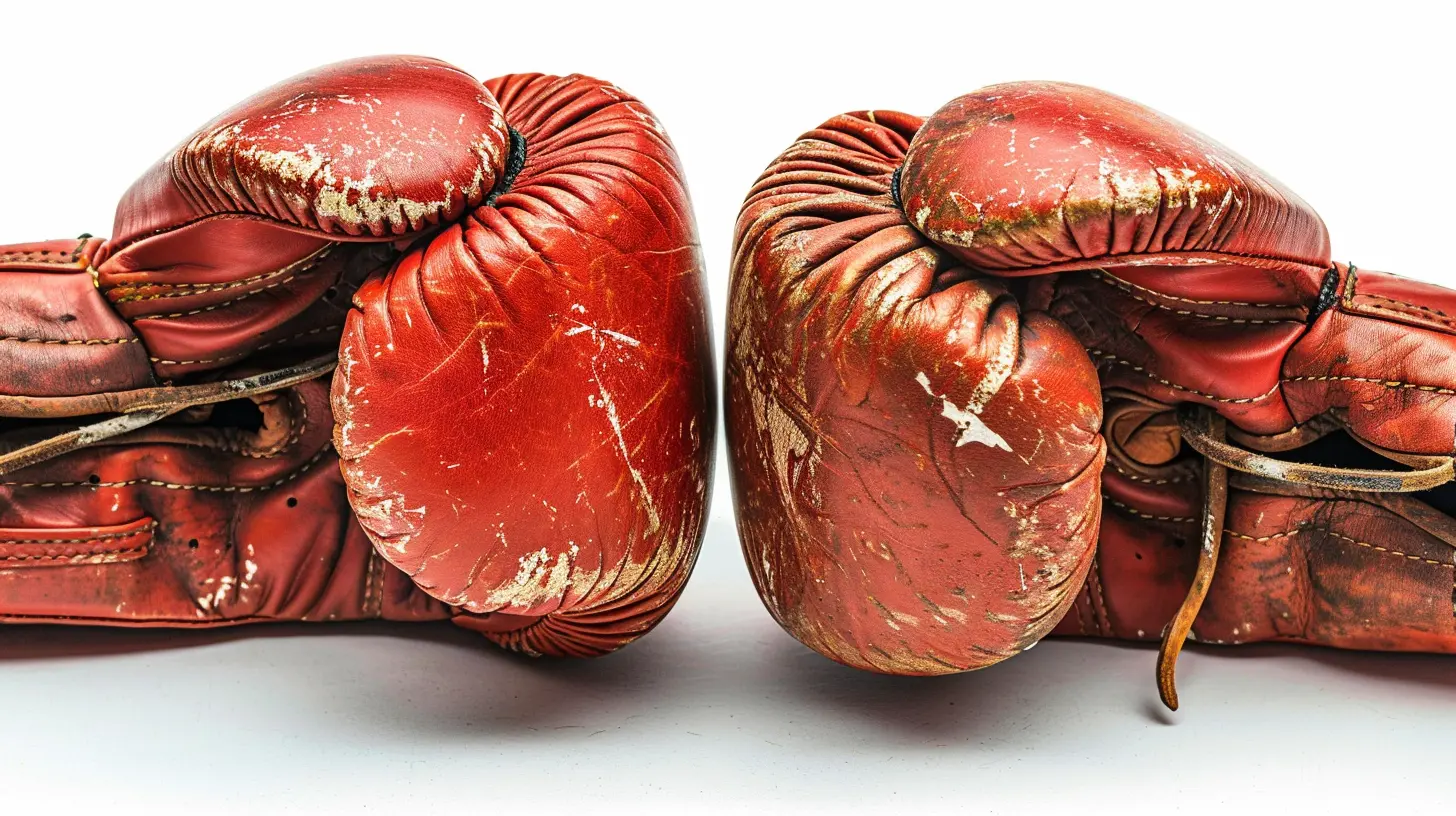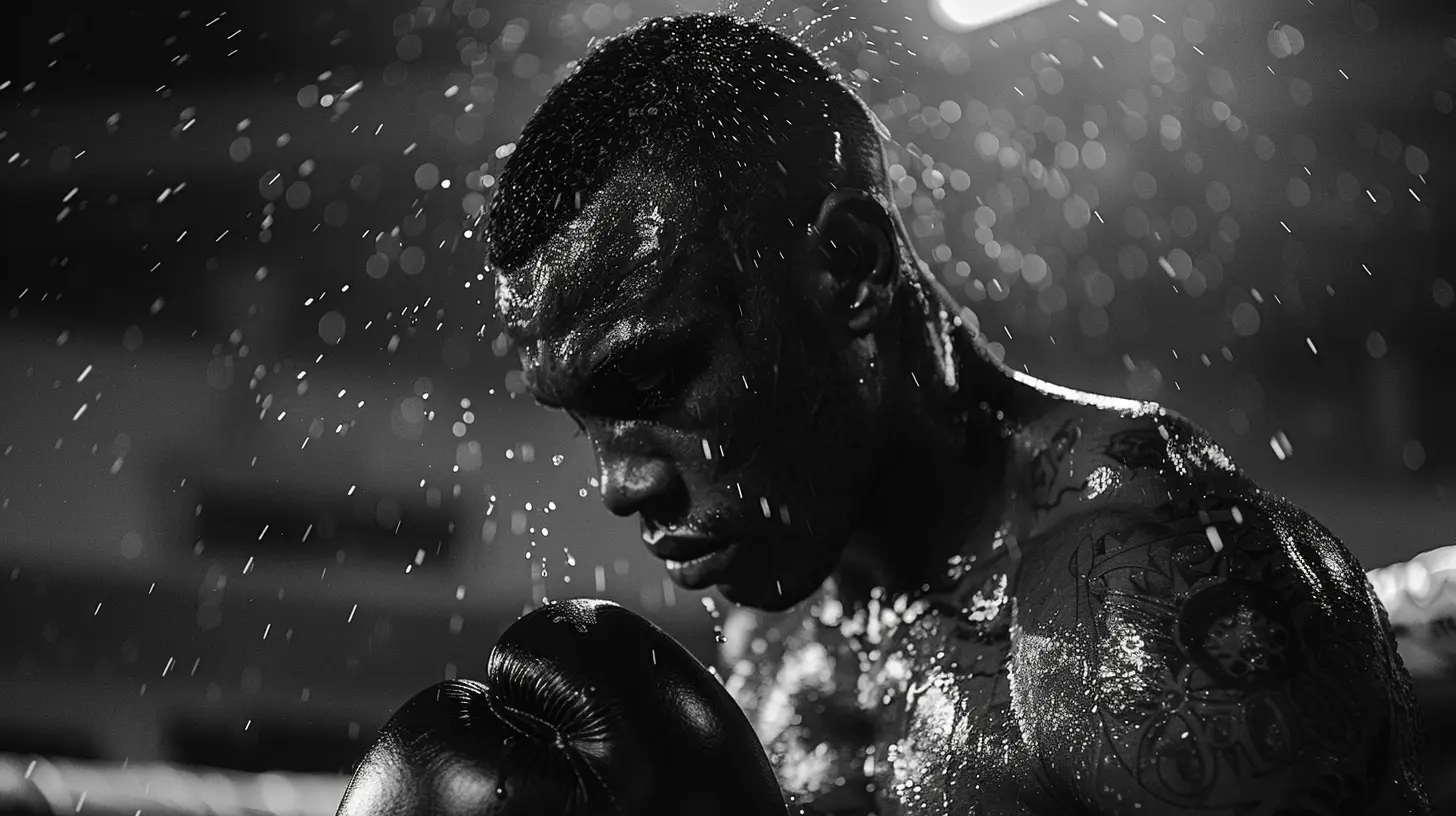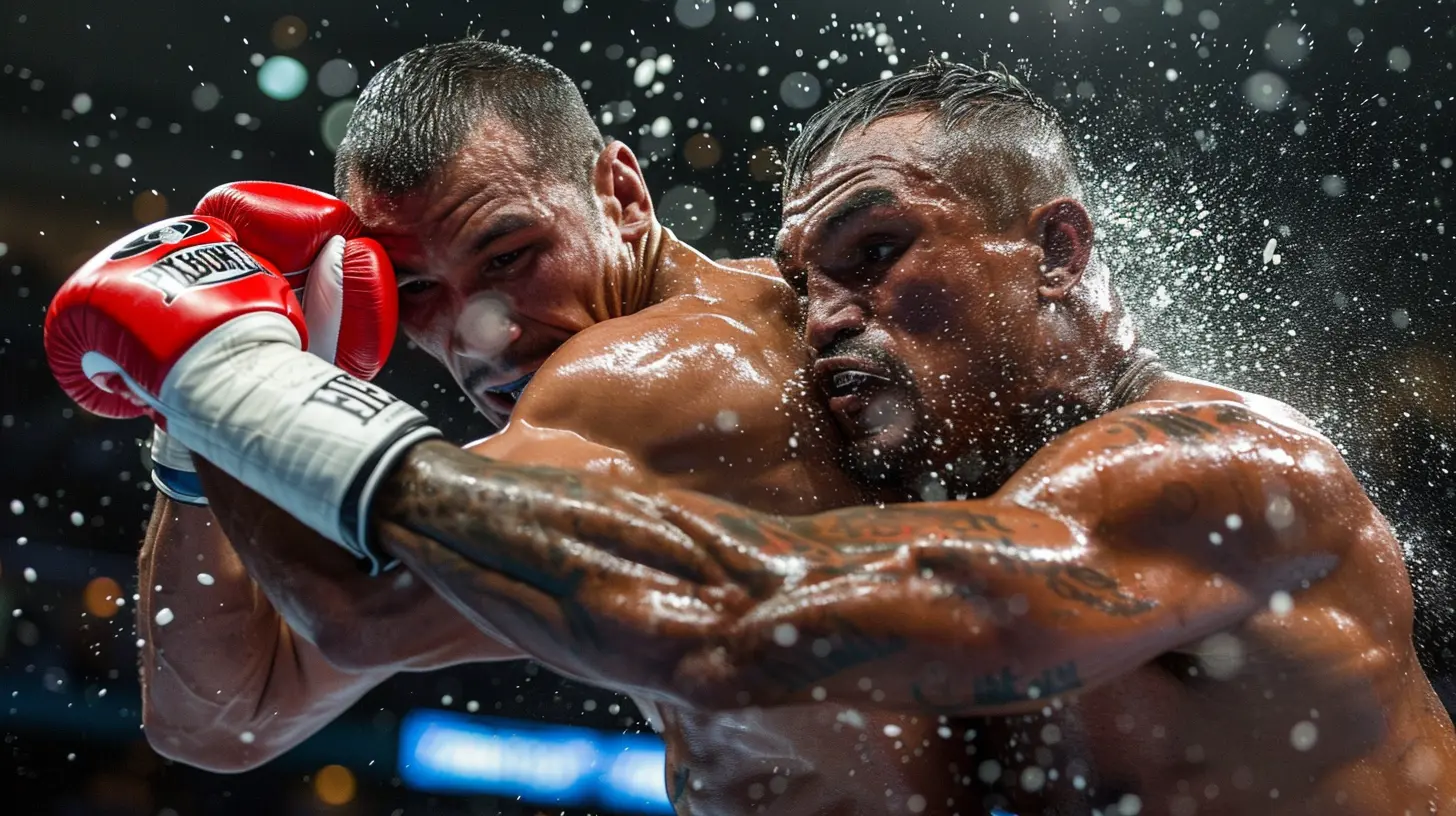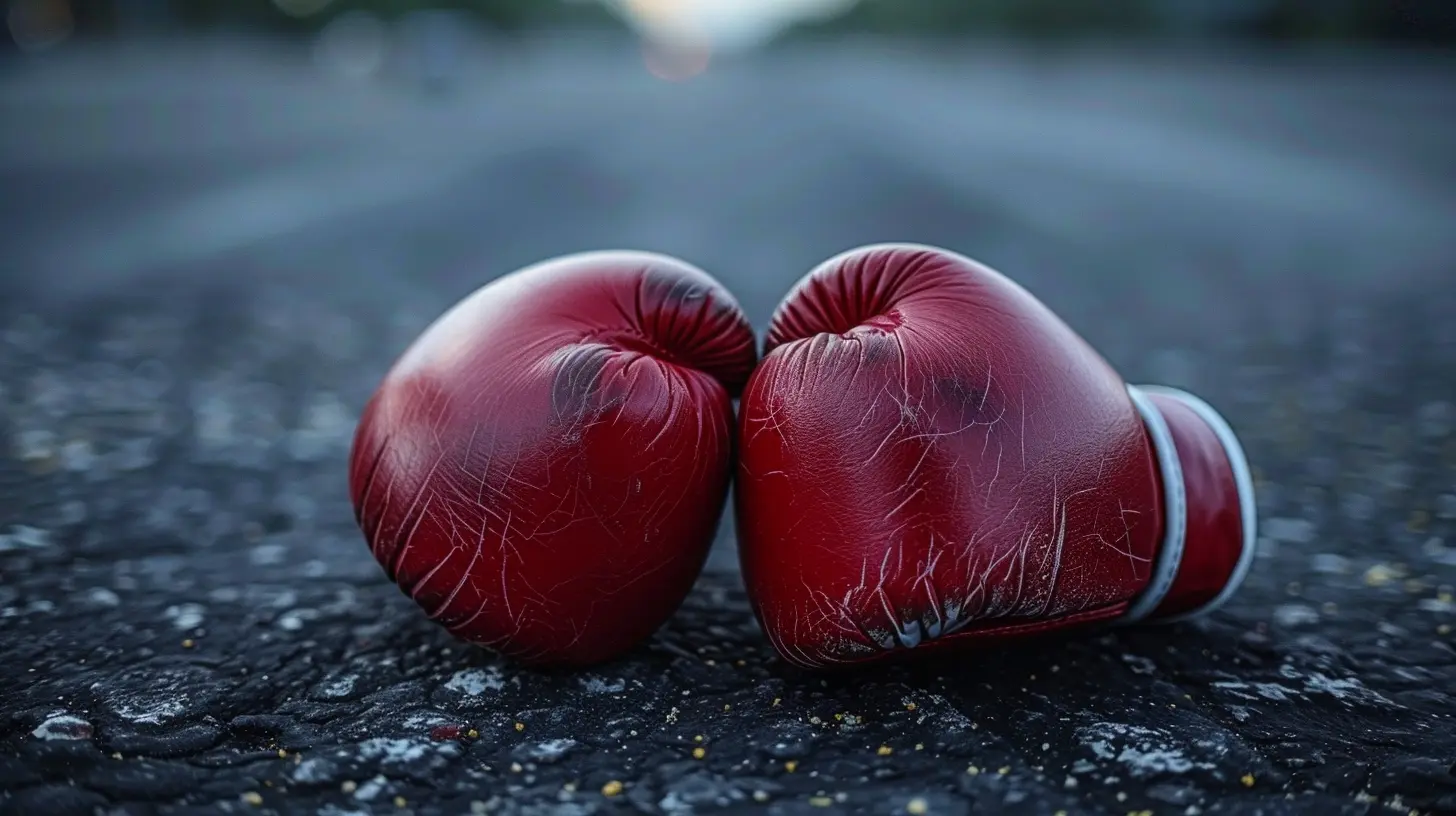The Importance of Recovery: Rest and Rehab for Boxers
21 May 2025
Boxing is one of the most physically demanding sports out there. From the intense training sessions to the high-stakes matches, boxers push their bodies to the absolute limit. But here's the thing: as much as training is crucial, recovery is just as important. If you’re a boxer or a boxing enthusiast, you already know that it's not just about how hard you punch or how fast you move—it's about how well you can rest, recover, and bounce back stronger.
Let’s dig into why recovery is essential for boxers, the science behind it, and how rest and rehabilitation can make or break a fighter's career.

Why Recovery Matters in Boxing
Imagine your muscles are like a rubber band—stretch them too far, and they snap. The same applies to your body. Boxing involves repetitive, high-intensity movements that place significant stress on your muscles, joints, and cardiovascular system. Without proper recovery, your body doesn’t get a chance to heal, leading to poor performance and, even worse, injury.Preventing Injuries
Let’s face it: boxing is a brutal sport. Between sparring, bag work, and footwork drills, boxers are constantly putting their bodies in harm’s way. Recovery allows your body to repair small microtears in muscle fibers that occur during training. Neglecting this recovery period can lead to overuse injuries, like tendinitis, or more severe injuries that could put you out of the ring for months.Think about it like this: if you keep driving a car without giving it a tune-up, eventually, something’s going to break down. Your body is no different—it needs regular maintenance to keep running smoothly.
Improving Performance
Believe it or not, rest can actually make you better in the ring. Here’s why: when you rest, your body doesn’t just sit idle—it’s actively repairing and strengthening itself. This means when you come back to training, you’re not only fully replenished but potentially stronger and more resilient than before.It’s like recharging a battery. You can’t expect it to keep running at full capacity if you don’t give it some downtime to recharge.
Mental Recovery
Boxing isn’t just a physical sport—it’s a mental game too. The focus and discipline required to be successful in the ring are immense. Constantly training without breaks can lead to burnout, anxiety, and even a lack of motivation. Taking time to rest allows your brain to reset, helping you stay sharp, focused, and ready for the next challenge.
The Science Behind Recovery
Okay, so we know recovery is important. But what’s actually happening in your body during rest?Muscle Repair and Growth
When you train, especially during strength and conditioning exercises, you’re breaking down muscle tissue. During rest, your body enters repair mode, using protein and other nutrients to rebuild those tissues. This process, known as muscle hypertrophy, is how muscles grow and become stronger. Without rest, this process is incomplete, and you might find yourself stuck at a performance plateau.Hormonal Balance
Training puts stress on your body, which causes the release of cortisol—a stress hormone. While some cortisol is necessary to fuel your workout, too much of it can have negative effects, like lowering your immune function and halting muscle growth. Rest helps regulate cortisol levels and balances other important hormones, like testosterone and human growth hormone (HGH), which are essential for recovery and muscle building.Nervous System Recovery
Your central nervous system (CNS) takes a beating during intense workouts. The CNS is responsible for sending signals from your brain to your muscles, coordinating movement, and maintaining focus. Constant high-intensity training can leave your nervous system fatigued, which affects your reaction time, coordination, and decision-making in the ring. Rest helps your CNS recover, allowing you to react quicker and think sharper during those pivotal moments in a fight.
Key Components of Recovery for Boxers
So now that we understand why recovery is essential, let’s break down some of the most effective methods that boxers can use to optimize their rest and rehabilitation.1. Sleep: The Ultimate Recovery Tool
Nothing beats good ol' sleep when it comes to recovery. Sleep is when most of the muscle repair and growth happen. During deep sleep, the body releases growth hormones, which are critical for tissue repair.How Much Sleep Do Boxers Need?
The average person needs about 7-9 hours of sleep, but for boxers, more might be necessary. We're talking about 8-10 hours of quality sleep per night, with some athletes even incorporating naps during the day to ensure they're fully rested.2. Active Recovery
Contrary to popular belief, recovery doesn’t always mean lying on the couch all day. Active recovery involves light exercises, such as walking, swimming, or cycling, to promote blood flow and help flush out toxins like lactic acid that build up during training.Think of it as a cool-down for your entire body. It keeps you moving without overloading your muscles and joints.
3. Stretching and Mobility Work
Stretching is one of the most overlooked aspects of recovery, yet it’s crucial for maintaining flexibility and preventing injuries. Stretching helps improve blood flow, alleviates muscle tension, and enhances range of motion—all of which are critical for a boxer’s footwork and agility.Static vs. Dynamic Stretching
- Static stretching (holding a stretch for 15-30 seconds) is best for post-workout cooldowns.- Dynamic stretching (active movements that take joints through their full range of motion) is ideal for warming up before training.
4. Massage Therapy and Foam Rolling
Massage therapy works wonders for muscle recovery by increasing circulation, reducing muscle soreness, and improving flexibility. If you can’t afford regular professional massages, foam rolling is a fantastic alternative. Foam rolling targets trigger points in your muscles and helps break up scar tissue, promoting faster recovery.5. Hydration and Nutrition
Recovery isn’t just about what you do with your body—it’s also about what you put into it. Staying hydrated is critical for muscle repair, as water helps transport nutrients to your muscles and flush out waste products.When it comes to nutrition, think of your body as a high-performance machine that needs top-tier fuel. Protein is essential for muscle repair, while carbohydrates help replenish glycogen stores. Don't forget healthy fats; they play a role in reducing inflammation and supporting overall recovery.
Post-Workout Nutrition
After a tough session, aim to consume a meal with a good balance of protein and carbs within 30 minutes to 2 hours. This window is when your muscles are most primed to absorb nutrients and start the recovery process.6. Mindfulness and Mental Rest
Boxing is as much a mental battle as it is physical. Incorporating mindfulness techniques like meditation or deep breathing exercises can help boxers manage stress, sharpen focus, and stay mentally fresh. Mental rest is just as important as physical rest, especially in a sport that demands quick decision-making and high levels of concentration.7. Cold Therapy and Heat Therapy
Ever seen athletes jump into an ice bath after a game or match? That’s cold therapy in action. Cold therapy (cryotherapy) can reduce inflammation and numb sore muscles, speeding up recovery.On the flip side, heat therapy (like heating pads or warm baths) can relax tight muscles and improve blood flow. Some boxers alternate between the two in a method called contrast therapy, which can offer the best of both worlds.

How Rest and Recovery Impact Longevity in Boxing
Boxing careers are notoriously short, with many fighters retiring in their 30s. But those who prioritize recovery throughout their careers often enjoy more longevity. By giving their bodies the time they need to heal, boxers can extend their careers, avoid unnecessary injuries, and maintain peak performance longer.Take the legendary Bernard Hopkins, for example. He fought well into his 50s, largely because he prioritized recovery and took care of his body. On the flip side, young fighters who neglect recovery often burn out or suffer career-ending injuries early on.
Common Mistakes Boxers Make with Recovery
Unfortunately, many fighters don’t take recovery seriously enough. Here are some common mistakes:- Overtraining: Pushing yourself to the limit every day without giving your body time to rest is a fast track to burnout and injury.
- Skipping Sleep: Staying up late or not getting enough sleep can severely impact your recovery, leading to fatigue and poor performance.
- Ignoring Minor Injuries: Many fighters push through minor injuries, thinking they’ll just "tough it out." This can lead to more serious injuries that could have been prevented with proper rest and treatment.
Conclusion: Recovery is a Game-Changer
In the world of boxing, where every punch, every round, and every second counts, recovery is your secret weapon. It’s not just something you do when you're injured—it's part of your overall strategy to stay strong, fast, and resilient. By prioritizing rest and rehabilitation, you’re investing in your future as a fighter. So, the next time you feel like skipping a rest day, remember: champions are made not just in the gym, but in how well they recover outside of it.all images in this post were generated using AI tools
Category:
BoxingAuthor:

Onyx Frye
Discussion
rate this article
3 comments
Chantal Henson
Recovery is like a secret weapon in a boxer's arsenal—who knew that lounging like a champion could be just as important as throwing punches? Remember, even the toughest gloves need a break! Here’s to ice baths, naps, and the art of doing nothing!" 🥊💤
May 29, 2025 at 12:31 PM

Onyx Frye
Absolutely! Recovery is essential for peak performance—it's not just about training hard, but also about resting smart. Cheers to the champions who know the value of balancing hustle with rest! 🥊💪
Chase Bowman
This article highlights a crucial yet often overlooked aspect of boxing—recovery. Adequate rest and rehabilitation not only enhance performance but also prevent injuries, ensuring fighters remain at their peak throughout their careers.
May 24, 2025 at 4:21 AM

Onyx Frye
Thank you for your insightful comment! Recovery is indeed vital for a boxer's longevity and performance. Glad you found the article valuable!
Presley Anderson
Great insights! Recovery is truly vital!
May 23, 2025 at 4:21 AM

Onyx Frye
Thank you! I'm glad you found the insights valuable. Recovery is essential for peak performance in boxing!



